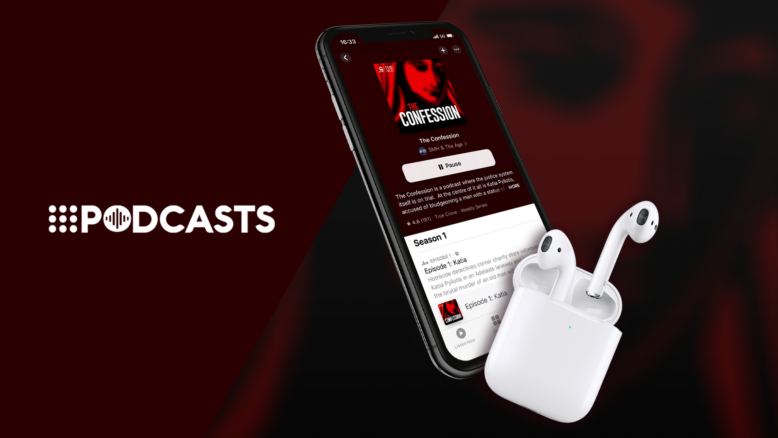What happens when a murder case implodes from the witness box?

What happens when a murder case implodes from the witness box?

Investigative podcast ‘The Confession’ lifts the lid on grisly murder case and how the justice system failed a prime suspect.
Chilling new details about one of Australia’s most remarkable legal cases of a grisly murder involving a statue of the Virgin Mary, a tin of mangoes, and four murder trials that has resulted in no convicted killer, are revealed in a powerful new investigative podcast The Confession from The Age and The Sydney Morning Herald.
The seven part series by award-winning former Age investigative journalist Richard Baker, delves into the disturbing 2005 murder of Victorian widower Eliah Abdelmessih, 69, and the desperate fight for freedom by Katia Pyliotis, 40.
Featuring exclusive access to witness statements, rare courtroom audio recordings of police being cross examined and fascinating interviews with Katia talking for the first time, The Confession is a harrowing story of what happens when a murder case implodes.
Since Katia’s arrest in 2016, she has faced four murder trials, an appeal and an application to the Supreme Court of Victoria for permanent stay on the murder charge after the discovery of a lost police diary changed her fortunes and put the focus on her accusers – the police.
“How Katia came to be a convicted murderer is one of the most bewildering and at times hard to believe stories I’ve ever heard,” says Baker. “Her story is as important as it is fascinating because it takes us inside the workings of the justice system; the complex organism our society relies upon to uphold the rule of law to provide us with structure and stability.”
Eliah was found dead in his Kew East home in September 2005 after a frenzied attack. Lying close to his body was an array of items, including two wrenches, a tin of mangoes and a broken and bloodied statue of the Virgin Mary. Nearby was a single black glove and a used condom.
Despite the media coverage, the case soon went cold. Eleven years later, in May 2016, Katia was arrested at an Adelaide charity shop where she worked, and soon charged with murder.
At first, it appeared the past had finally caught up with Katia. Having worked at a McDonalds restaurant that Eliah frequented – where the lonely man was known to try to convince young women to come back to his house for sex – Katia was placed at the scene of the crime.
Adamant that Eliah was already dead when she discovered him yet unable to escape the fact her DNA was all over the crime scene, her failure to report his death in 2005 and stumbles when first questioned by police ended with her receiving a 19 year jail sentence for murder in 2018 which was quashed on appeal two years later.
“I tried to kill myself in jail,” reveals Katia, who speaks for the first time about her six year ordeal. “I gave up hope. It got to a point where I was saying to myself that I’d rather die than be in jail for something I didn’t do. For something that’s so bad.”
The series hears never-before-heard recordings of homicide detectives being crossed examined in 2020 about their investigation of Eliah’s murder, and an alternate suspect, Susan Reddie. This suspect – cognitively impaired and addicted to alcohol – had confessed to a carer that she’d assaulted Eliah in his house on the weekend he died.
The homicide detective leading the investigation, Warren Ryan, repeatedly testified that Reddie had told him she had made up her confession and that notes of his conversation in his 2005 police diary which would support his evidence. But his diary had been lost and was not available for any of the trials.
Katia’s lawyers argued that the presence of a viable suspect made it impossible for her to be found guilty beyond a reasonable doubt. The turning point in the case was in mid-2020 just before another trial was due to begin, when Ryan’s missing diary turned up. It failed to show what he or prosecutors had been hoping for and called into question the initial investigation.
Katia applied for a permanent stay on her murder charge, arguing the police evidence had been compromised and that continuing the case would be an abuse of process. During that application, the prosecutors abandoned their attempt to have another murder trial. The case was suddenly over.
The Confession is available now, with episodes released every Friday wherever you get APPLE, SPOTIFY and wherever you get your podcasts.
For further information, please contact:
Adrian Motte
Senior Communications Manager – Trade & Publishing
amotte@nine.com.au
Thursday, November 10, 2022






